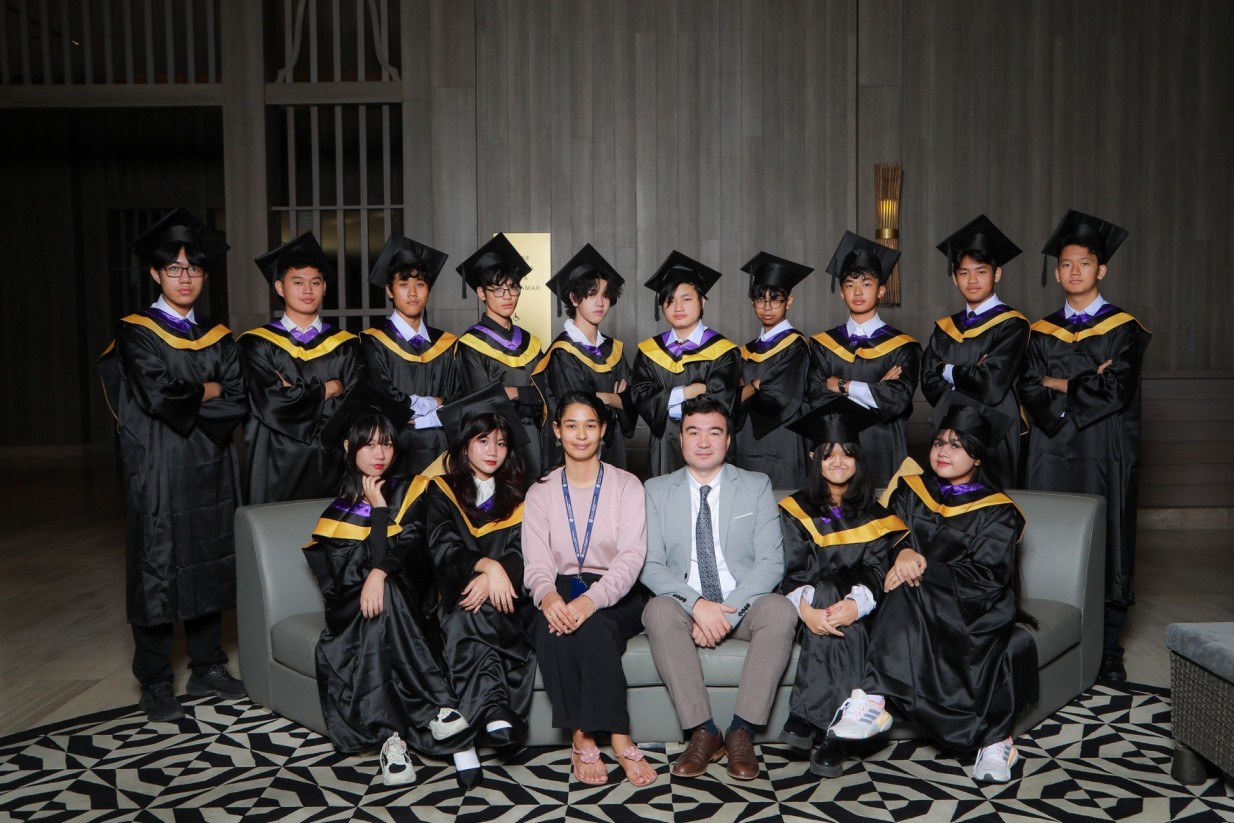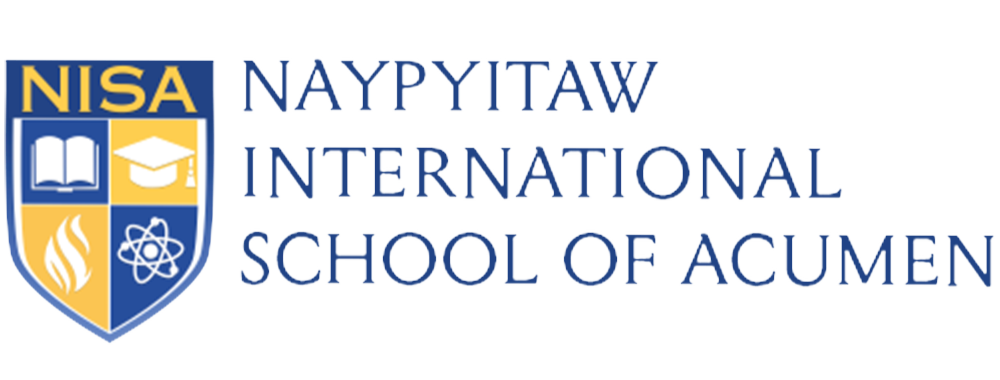
What is IGCSE?
IGCSE stands for the International General Certificate of Secondary Education. It is the international equivalent of the General Certificate of Secondary Education or GCSE, which is taken by all UK students at the end of their compulsory schooling at age 16.
Why study IGCSE?
In nearly two decades since their inception, IGCSEs have become a widely recognized standard for education. IGCSE is designed for 14–16-year-olds and provides a common assessment system suitable for students of a wide range of abilities. Students who obtain IGCSE qualifications are well prepared for further academic success, including progression to IBDP, AS and A Level study, and will be equipped with the skills needed for immediate employment. IGCSE is recognised as evidence of ability by academic institutions and employers around the world.
IGCSE Course Structure
Most IGCSE courses are 2 years in duration. At NISA, students start their IGCSE courses in Year 10 and continue until the final IGCSE examinations at the end of Year 11. For IGCSE, Students take 6 compulsory subjects including three core subjects and 5 elective subjects.
Compulsory core subjects include English, Mathematics and Global Perspectives. Meanwhile, students can choose the elective subjects based on their personal preference, talent, interests and future aim.
| Compulsory Subjects | |
| First Language English | Mathematics |
| Global Perspectives (Optional to sit for the Exam) | |
| Electives | |
| Additional Mathematics | Biology |
| Physics | Economics |
| Chemistry | Business studies |
| Information & Communication Technology | |
| Chinese | |
| Other compulsory subjects (non-examined) | |
| Homeroom (Character Education) | Physical Education |
| Myanmar Language | Myanmar Geography & History |
OVERVIEW OF THE SUBJECT STRUCTURE
| COMPULSORY SUBJECTS | PERIODS PER WEEK |
| FIRST LANGUAGE ENGLISH | 5 |
| MATHEMATICS | 5 |
| GLOBAL PERSPECTIVES | 2 |
| PHYSICAL EDUCATION | 2 |
| HOMEROOM | 1 |
| MYANMAR LANGUAGE | 5 |
| MYANMAR GEOGRAPHY | 1 |
| MYANMAR HISTORY | 1 |
| TOTAL PERIODS | 22 |
| ELECTIVE SUBJECTS | PERIODS PER WEEK |
| PHYSICS | 4 |
| ECONOMICS | |
| CHEMISTRY | 4 |
| BUSINESS | |
| ADDITIONAL MATHEMATICS | 4 |
| BIOLOGY | |
| ICT | 4 |
| CHINESE | 4 |
| TOTAL PERIODS | 20 |
First Language English (0500)
Cambridge IGCSE First Language English is designed for learners whose first language is English. The course enables learners to: develop the ability to communicate clearly, accurately and effectively when speaking and writing, use a wide range of vocabulary, and the correct grammar, spelling and punctuation, develop a personal style and an awareness of the audience being addressed. Learners are also encouraged to read widely, both for their own enjoyment and to further their awareness of the ways in which English can be used. Cambridge IGCSE First Language English also develops more general analysis and communication skills such as inference, and the ability to order facts and present opinions effectively.
English as a Second Language* (0511)
This subject helps students develop skills, which are needed for practical communication. They also build solid foundation skills required for further study or employment using English as the medium. Students become aware of the nature of the language and language learning skills. It also promotes learners’ personal development. Students are assessed in four skills: Reading Comprehension, writing, speaking and listening.
*English as a second language might be offered on demand. However it depends on the number of the students and the availability of teachers and school facilities. Students must submit their request in the first week of the academic year. Students cannot choose both English as a second Language and First Language English if offered.
Mathematics (0580)
An essential subject for all learners, Cambridge IGCSE Mathematics encourages the development of mathematical knowledge as a key life skill, and as a strong basis for more advanced study. The syllabus aims to build learners’ confidence by helping them develop competence and fluency with mathematical concepts, methods and skills, as well as a feel for numbers, patterns and relationships. The syllabus also places a strong emphasis on solving problems and presenting and interpreting results. Learners also gain an understanding of how to communicate and reason using mathematical concepts
Additional Mathematics (0606)
Cambridge IGCSE Additional Mathematics supports learners in building competency, confidence and fluency in their use of techniques and mathematical understanding. This course helps learners to develop a feel for quantity, patterns and relationships. Learners will develop their reasoning, problem-solving and analytical skills in a variety of contexts. It provides a strong foundation of mathematical knowledge both for candidates studying mathematics at a higher level and those who will require mathematics to support skills in other subjects. It is designed to stretch the most able candidates and provides a smooth transition to Cambridge AS & A Level Mathematics.
Physics (0625)
The Cambridge IGCSE Physics syllabus helps learners to understand the technological world in which they live, and take an informed interest in science and scientific developments. They learn about the basic principles of Physics through a mix of theoretical and practical studies. Learners develop experimental and investigation skills, which are needed for their further studies as well as daily life experiences. Physics has links to many other courses in higher education such as engineering, space and astronomy sciences.
Chemistry (0620)
The Cambridge IGCSE Chemistry syllabus helps learners to understand the technological world in which they live, and take an informed interest in science and scientific developments. Chemistry is an experimental science that connects theoretical knowledge with practical applications. Learners develop experimental and investigation skills, which are needed for their further studies as well as daily life experiences. Chemistry has links to many other courses in higher education such as medicine, biological sciences and environmental sciences.
Biology (0610)
The Cambridge IGCSE Biology syllabus helps learners to understand the living world around us, and take an informed interest in science and scientific developments. Learners develop experimental and investigation skills, which are needed for their further studies as well as daily life experiences. Biology has links to many other courses in higher education such as medicine, health sciences, botanics and zoology.
Business Studies (0450)
The Cambridge IGCSE Business Studies syllabus develops learners’ understanding of business activity in the public and private sectors, and the importance of innovation and change. Learners find out how the major types of business organisation are established, financed and run, and how their activities are regulated. Factors influencing business decision-making are also considered, as are the essential values of cooperation and interdependence. Learners not only study business concepts and techniques but also enhance related skills such as numeracy and enquiry. The syllabus provides both a foundation for further studies and an ideal preparation for the world of work.
Economics (0455)
The Cambridge IGCSE Economics syllabus develops an understanding of economic terminology and principles and of basic economic theory. Learners study the economics of developed and developing nations and how these interrelate. They also learn to handle simple data and undertake economic analysis, evaluate information and discriminate between facts and value judgments in economic issues. A foundation for further studies, the syllabus also encourages a better understanding of the world in which learners live, and helps them play an active part in the decision-making process, whether as consumers, producers or citizens of the local, national and international community.
ICT (0417)
The Information Communication Technology syllabus encourages learners to develop lifelong skills, which will be useful to them in their work across the curriculum and prepare them for future employment. They will develop understanding of the implications of technology in society, including social, economic and ethical uses and awareness of the ways ICT can help in home, learning and work environments. The syllabus combines theoretical and practical studies focusing on the ability to use common software applications to solve problems, including word processors, spreadsheets, databases, interactive presentation software, web browsers and website design. Learners analyse, design, implement, test and evaluate ICT systems, ensuring that they are fit for purpose.
Global Perspectives (0457)
Global Perspectives is a cross-curricular and skills-based subject which develops critical thinking skills and global awareness; promotes internationalism and encourages students to be open-minded individuals through activities and strategies like team work, presentations, projects, and working with other learners. Students discuss contemporary global issues such as poverty, global warming, and peace and conflict in the world.
Foreign Language Mandarin Chinese (0547)
This syllabus is designed for learners who are learning Mandarin Chinese as a foreign language. The aim is to develop an ability to use the language effectively for practical communication. The course is based on the linked language skills of listening, reading, speaking and writing, and these are built on as learners progress through their studies.
The syllabus also aims to offer insights into the culture of countries where Mandarin Chinese is spoken, thus encouraging positive attitudes towards language learning and towards speakers of other languages.
Physical Education
Physical Education encourages students to participate in physical and sports activities within and beyond the school. Students learn to develop competency in a wide range of physical activities. The course also aims to build students’ teamwork, self-confidence and competitive skills.
